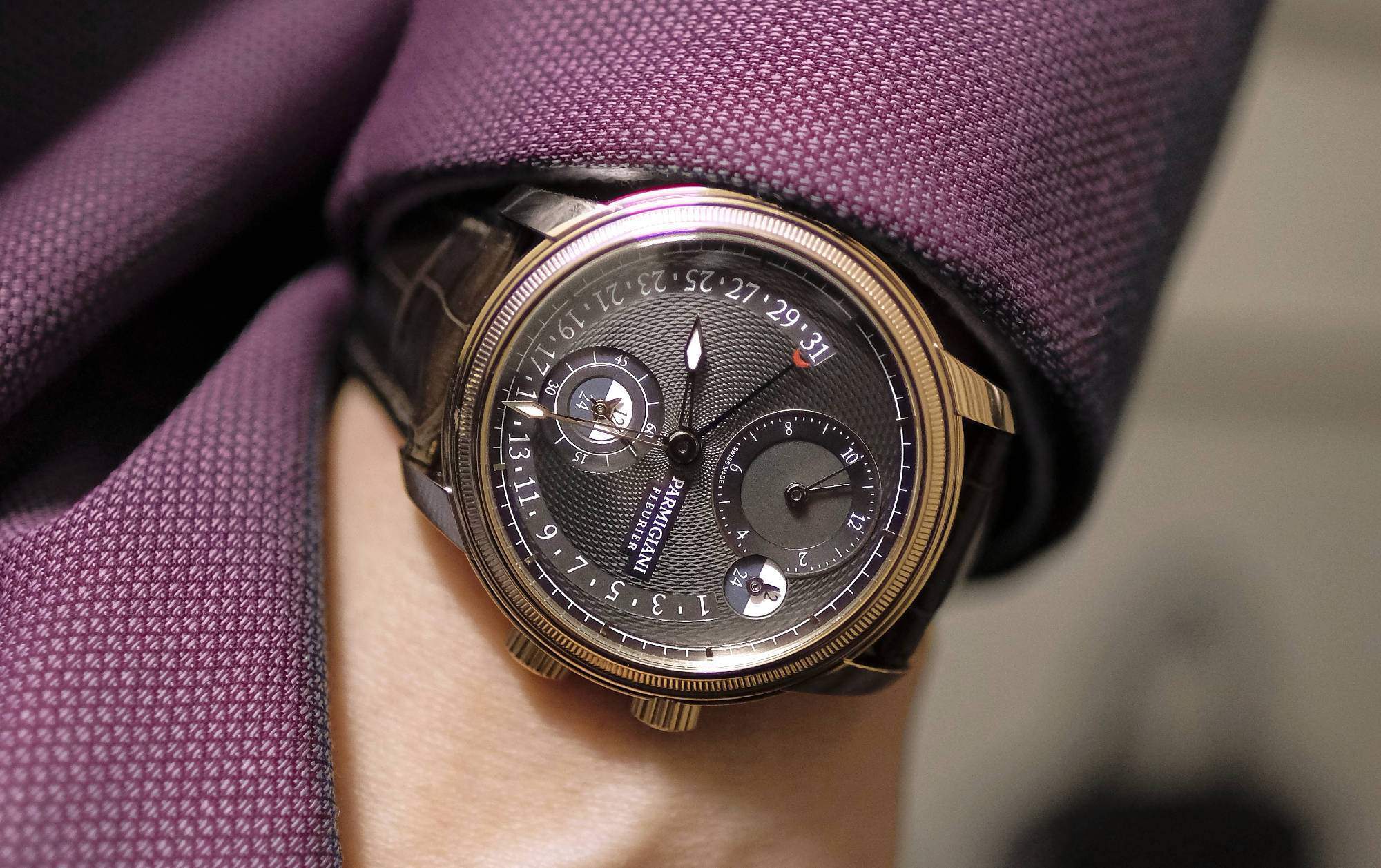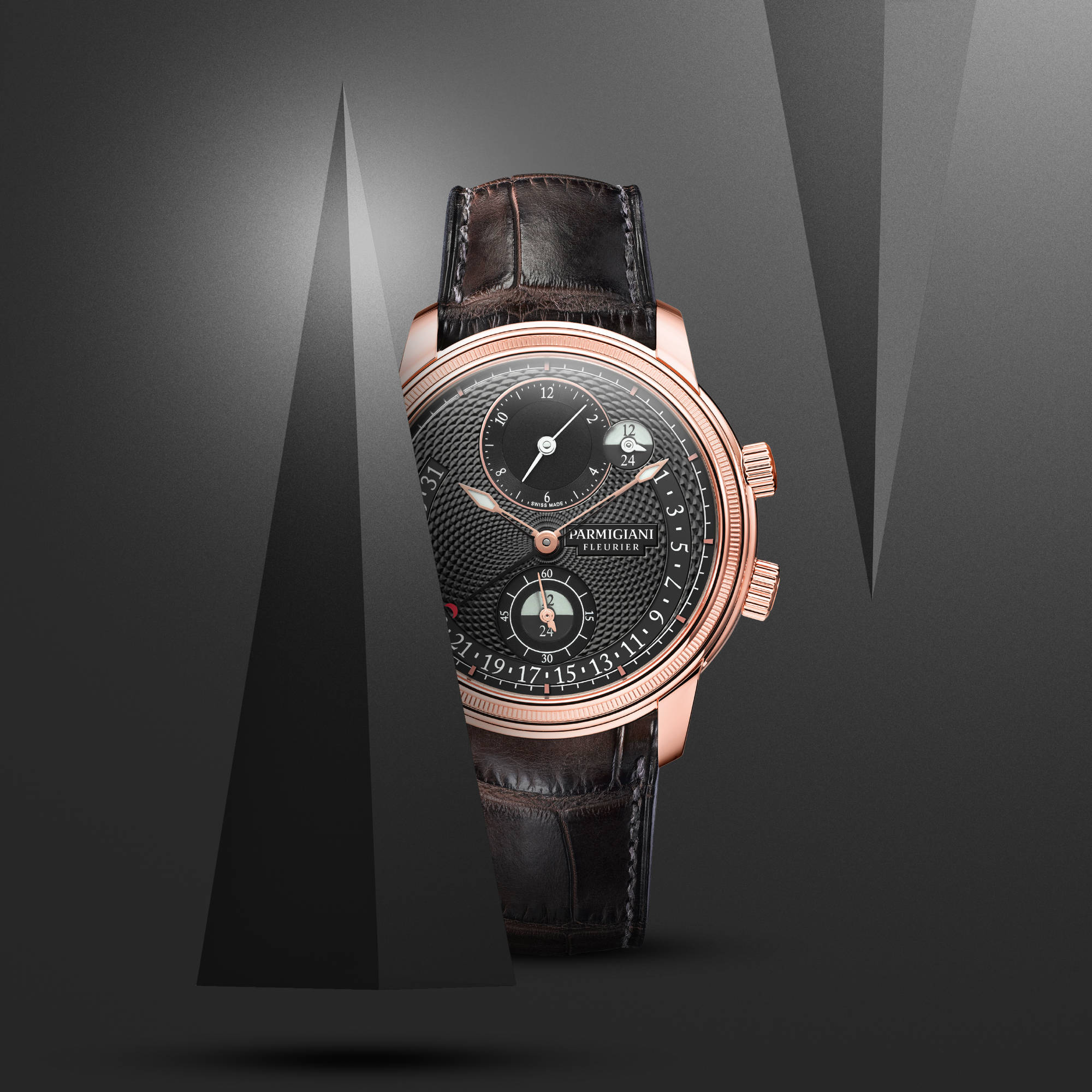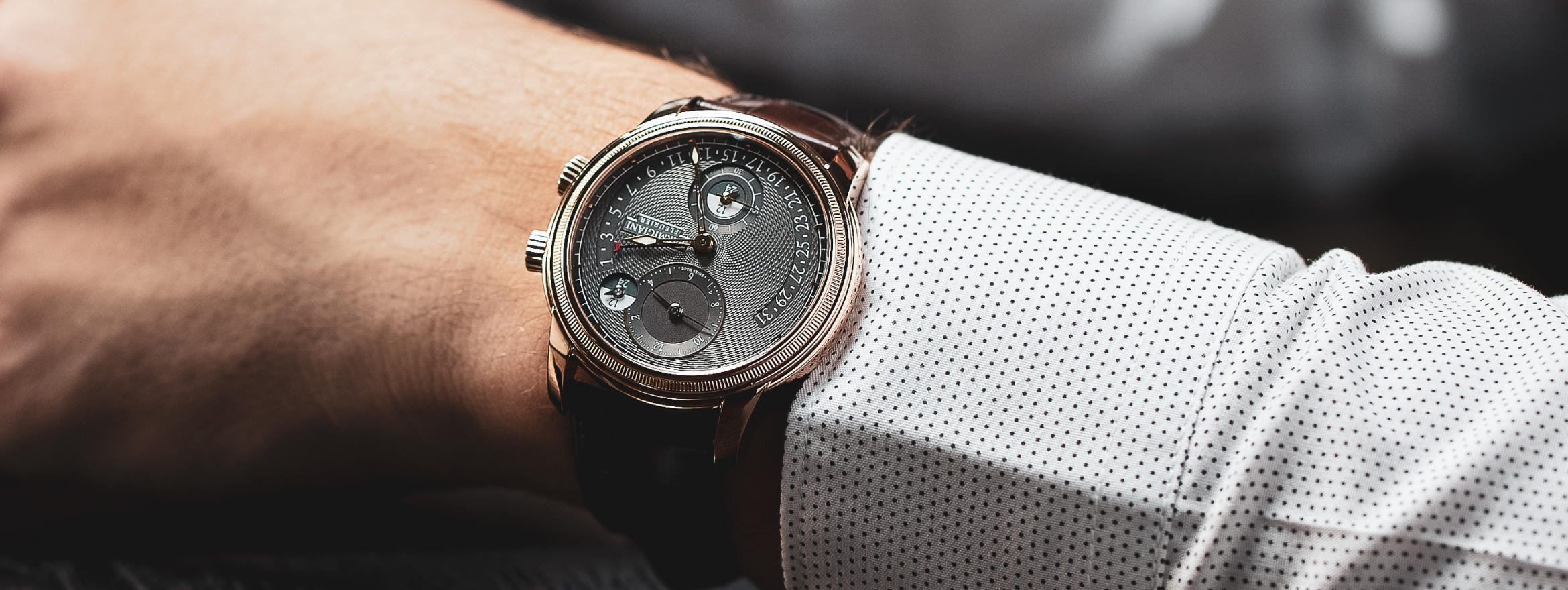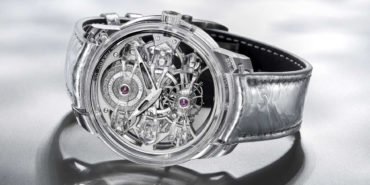Collector’s Guides • 12 Feb 2019
Parmigiani’s Hand-Guillochéd GMT
Parmigiani’s Hand-Guillochéd GMT
Following on from the success of the Toric Hémisphères Rétrograde (winner of the Travel Time Category at the 2017 GPHG), Parmigiani Fleurier has recently unveiled a new variant of their popular GMT. This time around the appropriately named Toric Hémisphères Rétrograde Slate features a slate-coloured hand-guillochéd dial.
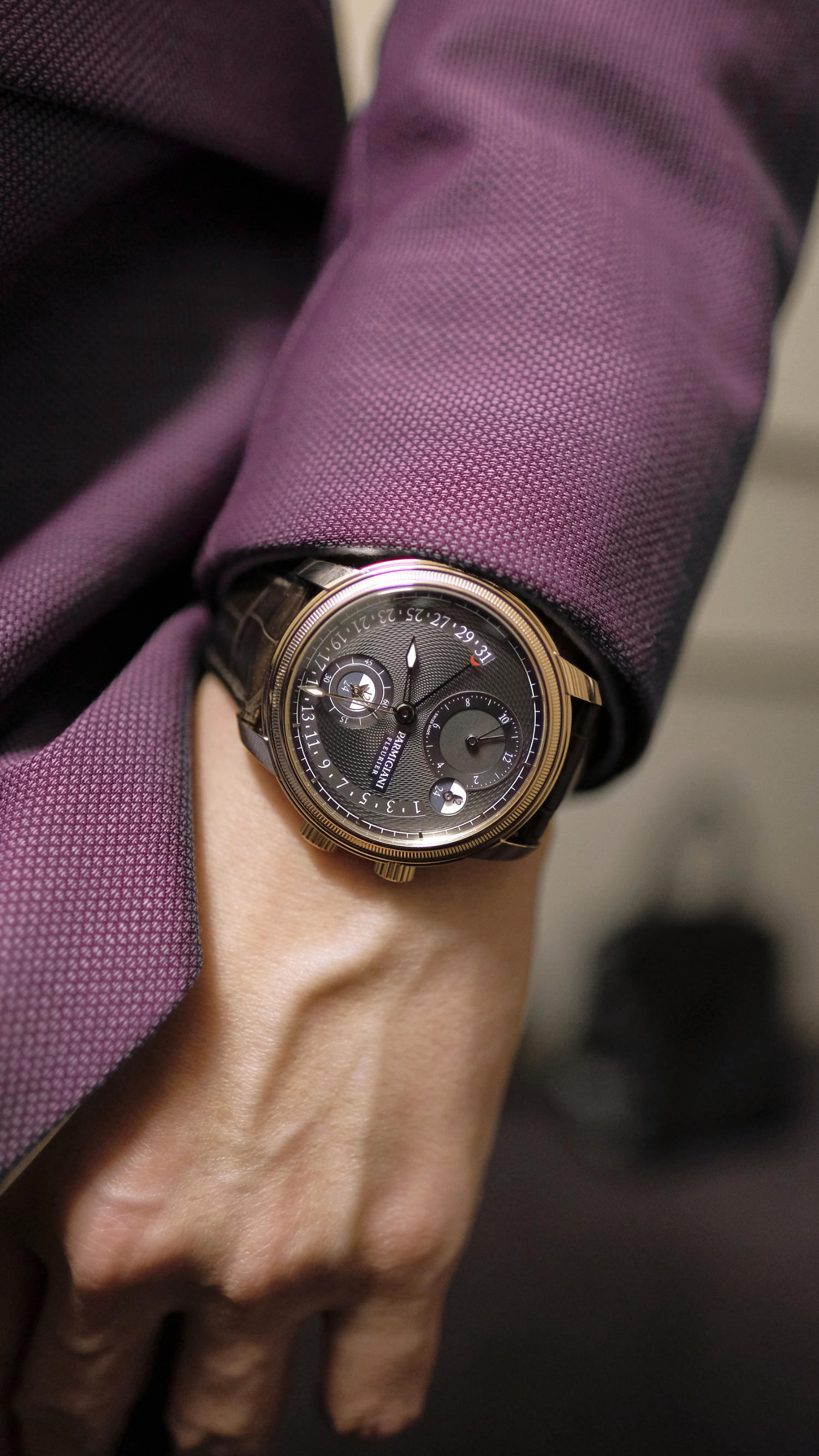
Singing Bird Guns & Synchronising Clocks
Before founding Parmigiani Fleurier, Michel Parmigiani cut his teeth restoring clocks and watches. Highlights include repairing one of Breguet’s sympathique clocks, previously thought to be beyond repair, as well as spending over 5000 hours patching up a singing-bird pistol. Renowned for his expertise in bringing horological artefacts back to life, Michel Parmigiani was entrusted with the maintenance of the priceless Maurice-Yves Sandoz collection before receiving financial backing from Pierre Landolt (Sandoz Family Foundation President and watch enthusiast) to pursue his own watchmaking ambitions.
“As a restorer, I like to say that five hundred years of history have passed through my hands…I’ve learned to decipher the coded language of my predecessors. I’ve also learned humility when confronted with these extraordinary objects, created from a perfect mastery of mechanics and a desire for beauty that commands admiration” – Michel Parmigiani

Inspired by Architecture & Nature
Launched in 1996, his eponymously named brand was founded with the intention to promote expert craftsmanship and keep age-old watchmaking techniques alive. Parmigiani Fleurier’s first watch, the Toric QP Retrograde, was emblematic of the classically-inspired aesthetic the brand is known for. Its bezel, decorated with alternating gadroons and knurling has gone on to become a hallmark of the brand. Its construction, reminiscent of Doric columns found in ancient Greece and Italy, was an early indication of Michel’s philosophy on watchmaking. That being: an ongoing commitment to draw inspiration from horology, architecture and the history of aesthetics (including the Golden Ratio). Another example of this being the concentric guillochéd dial, designed to evoke the arrangement of the scales on a pine cone. One of the innumerable examples of the Golden Ratio seen in the natural world.

Dial Layout
This being a GMT, there’s the ability to track two time zones. With the second time zone and day/night indicator at 12 o’clock and the primary day/night indicator and seconds hand found at 6 o’clock. Running from 2 o’clock to 10 o’clock is a semi-circle displaying the retrograde date, indicated by a third (red-crescent moon-tipped) central hand. As it moves towards the last days of the month, the hand activates a spring which drives it back to the 1st day of the month with great force. This 240° movement is so fast that it cannot be seen with the naked eye.
Subdials are in matte slate grey, providing an excellent contrast against the ornate guilloché found on the remainder of the dial. In comparison to the original white-grained Toric Hémisphères Rétrograde, the juxtaposition between the slate guillochéd dial and slate grained surfaces is apparent and greatly enhances the overall legibility of the watch.

Calibre PF317
First appearing in the Parmigiani Tonda Hémisphères that was launched in 2010, the Calibre PF317 differs from the norm by allowing the user to track a second time zone down to the minute. GMT watches conventionally allow the wearer to track two different time zones hours apart. Calibre PF317, on the other hand, allows the user to track time zones 30 or 45 minutes apart.
Now at face value, this doesn’t seem much of issue when most times on land are offset from Coordinated Universal Time (UTC) by the hour (UTC−12 to UTC+140). Indian Standard Time, on the other hand, is offset by 30 minutes (UTC+5:30), rendering most other GMT watches too impractical to use for their intended function. But for mechanical watch enthusiasts wanting to use a GMT in India, Adelaide or Newfoundland (to name a few), the ability to track down to the minute suddenly becomes hugely appealing. And from a mechanical perspective, there aren’t many watches that can claim to do what the Toric Hémisphères Rétrograde does.

Final Thoughts
With a hand-guillochéd dial, a knurled-bezel, retrograde date and the ability to track two time zones regardless of whatever funky metric they go by, there’s a lot to like about the Toric Hémisphères Rétrograde Slate. And this being a GMT, functionality goes beyond the ability to track multiple time zones. It’s 42.8 mm wide by 11.9 mm high case features anti-reflective sapphire glass, luminescent-coated rose gold javelin-shaped hands and a healthy power reserve of 50 hours. Overall the Toric Hémisphères Rétrograde Slate brings together what I like best about Parmigiani Fleurier; their uncompromising commitment towards making mechanically interesting, beautifully decorated watches.
